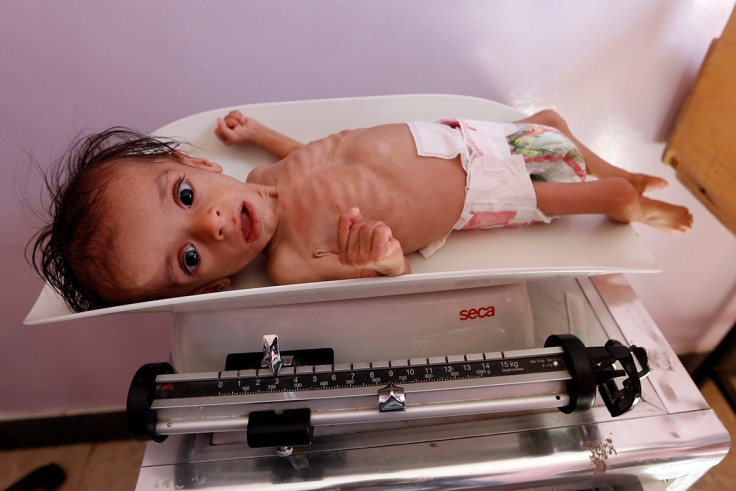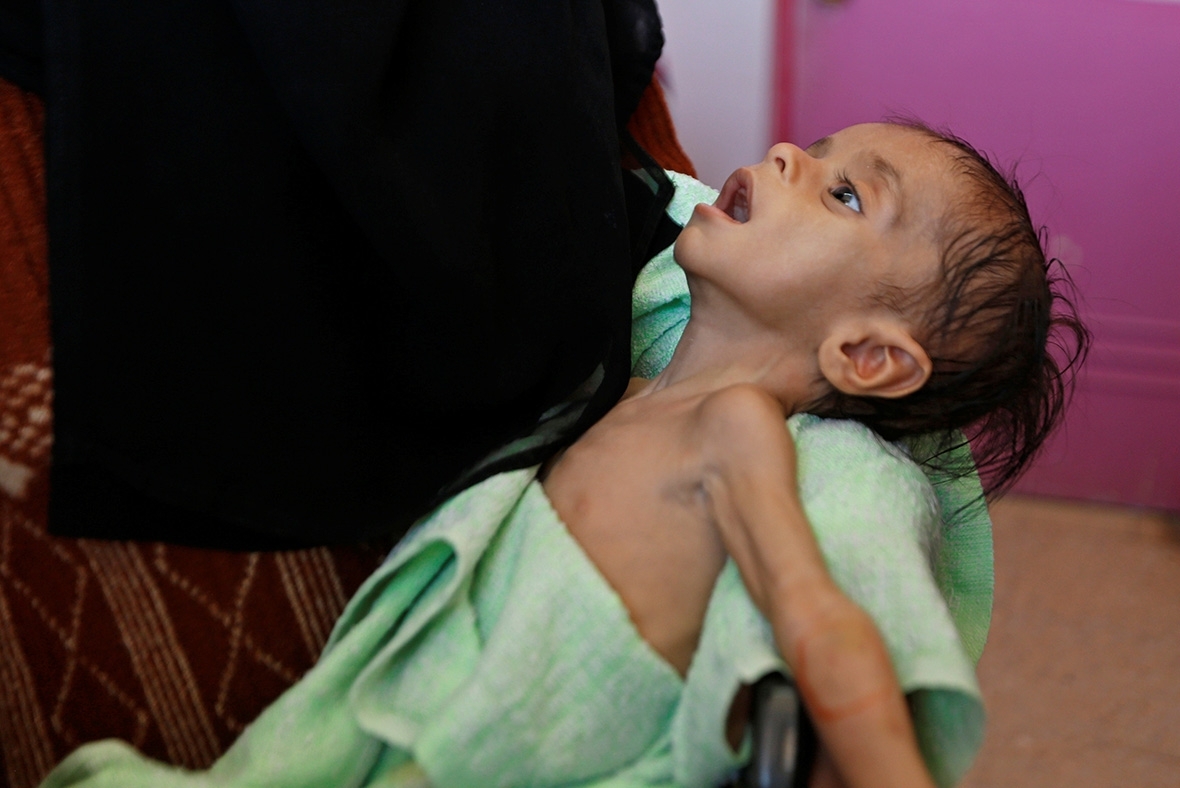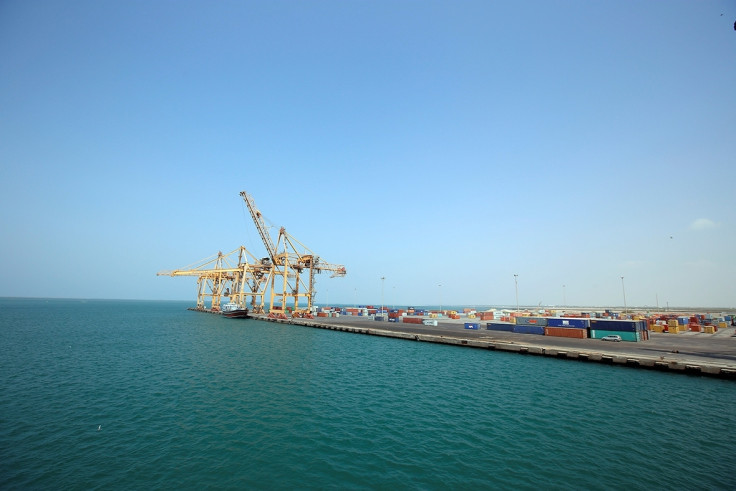Saudis to ease blockade to allow urgent humanitarian aid into Yemen
International aid groups describe the situation in Yemen as the world's worst humanitarian crisis as millions are at risk of famine.
The Saudi-led military coalition has said it will allow humanitarian aid into Yemen through its main airport and a vital Red Sea port, easing a blockade imposed after Houthi rebels fired a missile toward the Saudi capital on 6 November.
The UN and international aid agencies had repeatedly urged the coalition to lift the blockade, warning that some 150,000 children could die of malnutrition within months unless it were lifted. The UN has called the situation in Yemen the "worst humanitarian crisis in the world".

UN officials cautiously welcomed the Saudi decision to ease the blockade. "It is good news, but we are still waiting to see the specific details," said Jamie McGoldrick, the UN humanitarian chief for Yemen.
In an interview just before the coalition's announcement, McGoldrick told The Associated Press that if the blockade wasn't lifted it would make Yemen's long-suffering population more vulnerable to cholera and famine. Millions in Yemen are at immediate risk if food aid and the supply of fuel for pumping clean water are interrupted, he said.


The coalition closed all air, land and sea access to Yemen on 6 November following the interception of a missile fired towards the Saudi capital, saying it had to stem the flow of arms from Iran to its Houthi opponents in the war in Yemen. International aid agencies say Yemen faces disastrous consequences unless the blockade is completely lifted.
On 8 November, United Nations aid chief Mark Lowcock warned that Yemen could be facing "the largest famine the world has seen for many decades, with millions of victims".
Save the Children said an estimated 130 children or more already die every day in war-torn Yemen from extreme hunger and disease, and if the blockade continued it was likely to further increase the death rate. It says over 50,000 children are believed to have died in 2017.
The International Rescue Committee called the blockade a "collective punishment" of Yemenis that risked driving 500 children into malnutrition every week.
The US-funded Famine Early Warning Systems Network (FEWS NET) said famine was likely in many areas within three or four months if ports remain closed. "Thousands of deaths would occur each day due to the lack of food and disease outbreaks."
The United Nations has said some seven million people in Yemen depend entirely on food aid and are on the brink of famine and nearly 900,000 have been infected with cholera, a waterborne disease that causes acute diarrhoea and dehydration. Around four million rely on aid groups for clean water. A disruption of water supplies could reverse recent gains in containing the spread of cholera.
A flight carrying enough vaccines for about one million children is expected to land in Sanaa over the weekend after the easing of the blockade.






The Saudi-led coalition say Yemen's main airport in Sanaa will reopen to UN aircraft, and the port of Hodeidah will be able to receive urgent humanitarian aid, the coalition statement said. Around 80 percent of Yemen's food imports arrive through Hodeidah.
The port of Salef is also expected to reopen, deputy UN spokesman Farhan Haq said in New York, citing information UN humanitarian and political officials received from their Saudi counterparts. It was not immediately clear, however, if port operations will return to pre-blockade levels.
Aid groups said there also needed to be commercial access to Yemen for food and fuel shipments. "Humanitarian aid alone cannot meet the needs of Yemenis who are unjustly bearing the brunt of this war," Paolo Cernuschi, Yemen country director at the International Rescue Committee, said in a statement.
The Saudi-led coalition had further restricted access to the Arab world's poorest country after a missile assault by Houthi rebels targeted the Saudi capital, Riyadh. The missile was struck down but it was the farthest a projectile by the rebels had penetrated into the kingdom.
In response, ships were ordered to leave the Red Sea ports of Hodeidah and Salef, the only lifeline to northern Yemen where most of the population lives. The two ports are under the control of the Houthis.

The Saudi-led coalition went to war against the Shia rebels, known as Houthis, in March 2015 on behalf of Yemen's internationally recognised government. But the coalition has made little progress, and the rebels still control much of northern Yemen, including the capital, Sana'a. The war has killed more than 10,000 people and displaced three million.
Yemen was the Arab world's poorest country even before the conflict began.






















